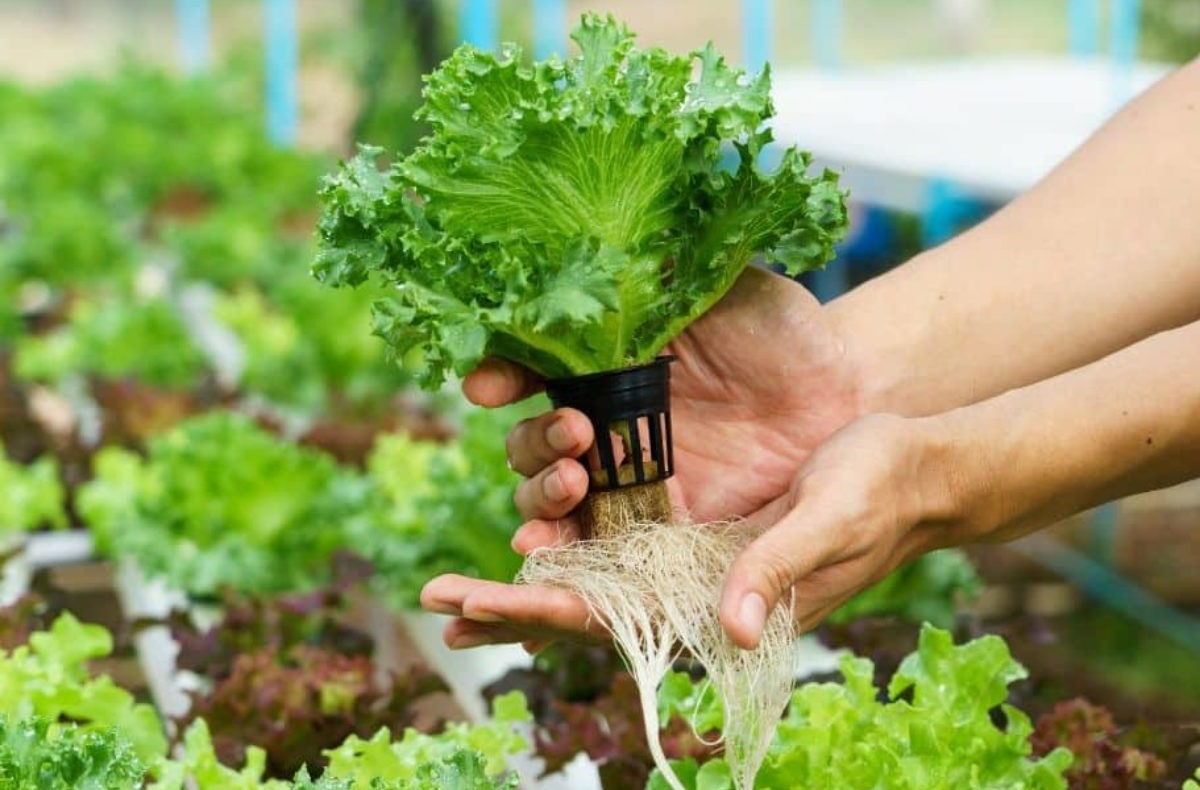
Hydroponics, the art and science of growing plants without soil, has gained immense popularity in recent years. This innovative cultivation method uses mineral nutrient solutions in water, providing the necessary nutrients for plant growth. Hydroponics offers numerous advantages over traditional soil-based gardening, making it a fascinating topic for any avid gardener or curious individual.
In this article, we will explore eight captivating facts about hydroponics that will surely pique your interest. From its origins to its modern applications, we will delve into the world of soil-less gardening and uncover the remarkable benefits and advancements that have made hydroponics such a game-changer in the agricultural industry. So, get ready to be amazed by the ingenuity behind this revolutionary practice!
Key Takeaways:
- Hydroponics is an eco-friendly and water-efficient way of growing plants without soil, leading to faster growth, year-round harvests, and better pest control. It’s a sustainable solution for the future of farming.
- With hydroponics, you can grow plants in small spaces, control their nutrient supply, and reduce the use of synthetic chemicals. It’s a cool and innovative method that helps produce healthier and more nutritious crops.
Eco-Friendly Solution
Hydroponics is an innovative and eco-friendly method of growing plants without soil. Instead, plants are grown in nutrient-rich water solutions, reducing the need for land space and minimizing water usage.
Increased Growth Rate
Hydroponics allows plants to grow up to 50% faster compared to traditional soil-based methods. This is due to the direct supply of nutrients and oxygen to the plant roots, which optimizes their growth and development.
Year-Round Harvest
With hydroponics, you can enjoy a year-round harvest regardless of the season. By controlling the environmental variables such as temperature, humidity, and light, you can create the ideal conditions for plant growth at any time of the year.
Water Conservation
Hydroponics is a water-efficient technique that uses up to 90% less water compared to traditional soil-based farming. The closed-loop system recirculates water, preventing wastage and making it a sustainable choice in areas with water scarcity.
Pest and Disease Control
One of the major advantages of hydroponics is the ability to control pests and diseases effectively. Since the plants are grown in a controlled environment, the risk of infestations and diseases is significantly reduced, allowing for healthier and more productive crops.
Space Optimization
Hydroponic systems are highly versatile and can be set up in various indoor and outdoor spaces. Whether you have a small balcony or a large commercial greenhouse, hydroponics allows you to optimize space and maximize crop yields.
Nutrient Precision
With hydroponics, you have complete control over the nutrient supply to the plants. This precision in nutrient delivery ensures that plants receive the optimal balance of essential elements throughout their growth cycle, resulting in healthier and more nutritious produce.
Sustainable Agriculture
Hydroponics is considered a sustainable form of agriculture as it reduces the reliance on synthetic fertilizers, pesticides, and herbicides. The closed-loop system minimizes environmental impact, making hydroponics a viable solution for the future of farming.
Conclusion
Hydroponics is an incredibly fascinating and innovative method of growing plants that has gained significant popularity in recent years. Not only does it eliminate the need for soil, but it also allows for more controlled and efficient plant growth. The ability to grow plants in a hydroponic system offers numerous advantages, including higher yields, faster growth rates, and the ability to grow plants in urban areas where space is limited. Additionally, hydroponics promotes water conservation and reduces the need for chemical pesticides and fertilizers.
As a sustainable and efficient farming practice, hydroponics has the potential to revolutionize the way we grow food. By harnessing the power of technology and science, hydroponics enables us to cultivate fresh, healthy produce in a controlled environment, regardless of geographical limitations. Whether you’re a gardening enthusiast, a commercial farmer, or simply curious about innovative farming methods, hydroponics is definitely an area worth exploring.
FAQs
Q: What is hydroponics?
A: Hydroponics is a method of growing plants without soil, using a nutrient-rich water solution instead. The roots of the plants are submerged in the water, and essential nutrients are provided directly to the plants to promote their growth.
Q: How does hydroponics work?
A: Hydroponics works by providing all the necessary nutrients directly to the plants through water. The plants are grown in a controlled environment, often using materials like perlite, coconut coir, or rockwool to anchor the root systems.
Q: What are the advantages of hydroponics?
A: The advantages of hydroponics include faster growth rates, higher yields, conservation of water resources, the ability to grow plants in limited spaces, and reduced reliance on chemical pesticides and fertilizers.
Q: What types of plants can be grown hydroponically?
A: Almost any type of plant can be grown hydroponically, including herbs, fruits, vegetables, and even flowers. However, some plants may be better suited for hydroponic cultivation than others.
Q: Is hydroponics an expensive method of growing plants?
A: While there may be initial setup costs involved in starting a hydroponic system, over time, it can be a cost-effective method due to increased yields and reduced water usage.
Q: Is hydroponically grown produce organic?
A: Hydroponically grown produce can be certified as organic if the specific criteria for organic farming are met, such as using organic nutrient solutions and pest control methods. However, not all hydroponically grown produce is necessarily organic.
Q: Can hydroponics be done at home?
A: Yes, hydroponics can be done at home on a small scale. There are many DIY hydroponic systems available that can be set up in limited spaces like balconies or indoor areas.
Q: Are there any disadvantages to hydroponics?
A: Some potential disadvantages of hydroponics include the reliance on artificial lighting, the need for precise nutrient management, and the risk of system failures if not properly maintained.
Hydroponics offers a fascinating glimpse into the future of agriculture, but there's even more to explore in this exciting field. For those curious about the people behind this innovative growing method, our article on hydroponic farmers provides captivating insights into their lives and work. If you're intrigued by the idea of combining aquaculture with hydroponics, our piece on aquaponics unveils astounding facts that will leave you amazed. And for those looking to bring the benefits of hydroponics into their own homes, our guide to the best indoor herb garden kits is a must-read.
Was this page helpful?
Our commitment to delivering trustworthy and engaging content is at the heart of what we do. Each fact on our site is contributed by real users like you, bringing a wealth of diverse insights and information. To ensure the highest standards of accuracy and reliability, our dedicated editors meticulously review each submission. This process guarantees that the facts we share are not only fascinating but also credible. Trust in our commitment to quality and authenticity as you explore and learn with us.


